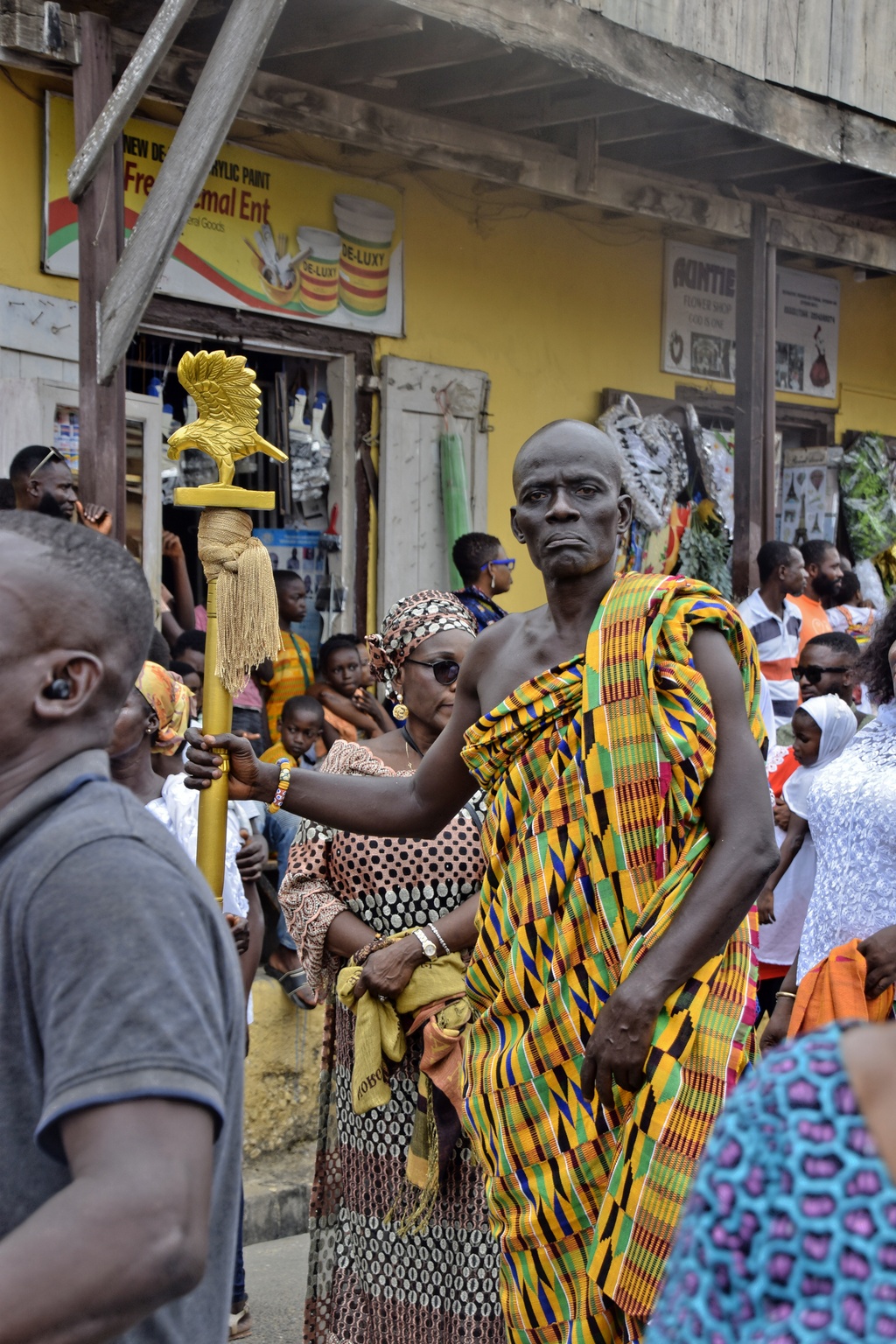
Case Study: The Asante Kingdom — A Monarchy Within a Republic
Among all of Ghana’s traditional kingdoms, the Asante Kingdom (or Ashanti Kingdom) stands in a class of its own.
Founded around 1700 under the leadership of Osei Tutu I and the spiritual guidance of Okomfo Anokye, the Asante Empire was once the most powerful state in West Africa. It controlled vast gold resources, led organized armies, and fought multiple wars with the British.
While the British eventually defeated the Asante militarily in 1901 and incorporated the territory into the Gold Coast colony, they never fully dismantled the Asante nation. The sacred symbol of Asante sovereignty — the Golden Stool (Sika Dwa Kofi) — was never captured. As a result, the Asante Kingdom still views itself as a sovereign cultural nation, though peacefully integrated into the Republic of Ghana.
Today’s Asante Kingdom:
Capital: Kumasi
Monarch: Otumfuo Nana Osei Tutu II (Asantehene)
Role: Custodian of Asante culture, land, tradition, and national peace
Influence: Mediation in national politics, education projects, conflict resolution
The Asantehene is perhaps Ghana’s most recognized traditional ruler, wielding no formal government powers but often being consulted on national matters. The Akwasidae Festival, celebrated every six weeks at Manhyia Palace, draws thousands — from global dignitaries to Asante subjects — in reverence for their living monarchy.
Other Notable Kingdoms of Ghana
1. Dagbon Kingdom – Northern Ghana
Founded: ~15th century
Capital: Yendi
Tribe: Dagomba
Ruler: Ya-Na
A deeply Islamic kingdom, the Dagbon state has a rich military and musical culture. The 2019 enskinment of a new Ya-Na after decades of succession disputes was seen as a turning point in northern Ghana’s reconciliation and development.
2. Mamprugu Kingdom – North East Ghana
Founded: ~13th century
Capital: Nalerigu / Gambaga
Ruler: Nayiri
Regarded as the oldest kingdom in Ghana, with roots extending into Burkina Faso and Togo. It remains a spiritual and judicial center for many in the northeast.
3. Gonja Kingdom – Savannah Region
Founded: ~16th century
Capital: Damongo
Ruler: Yagbonwura
A Mande-speaking people whose kingdom was built on trade and cavalry-based military strength. The Gonja continue to play a unifying role in the Savannah Region.
4. Anlo Kingdom – Volta Region
Founded: ~17th century
Capital: Anloga
Tribe: Ewe
Ruler: Awomefia
Known for the Hogbetsotso Festival, which celebrates the Ewe people's migration and resistance against tyranny.
5. Fante Confederacy – Central and Western Coast
Founded: ~16th century
Centers: Mankessim, Cape Coast, Elmina
Tribe: Fante (Akan)
A federation of smaller states with independent paramount chiefs. Though once disjointed, they acted as a strong military and cultural force in resisting both Asante and European powers.
Roles These Kingdoms Play Today
Even in the digital age, Ghana’s traditional kingdoms continue to play crucial roles in:
Conflict resolution: Chiefs settle disputes according to customary law, often faster and more culturally appropriate than state courts.
Land management: Traditional authorities control about 80% of land in Ghana.
Cultural preservation: Festivals like Aboakyer, Homowo, Damba, and Odwira are organized by these kingdoms and form the backbone of Ghana’s tourism and cultural identity.
Community development: Many kings and chiefs are involved in building schools, hospitals, and water systems in their communities.
The Crown and the Constitution
While Ghana is a unitary republic with a President, Parliament, and Judiciary, the traditional governance system remains alive and influential. The National House of Chiefs, headquartered in Kumasi, helps coordinate matters between the various chieftaincies and the government.
Importantly, traditional leaders are barred from partisan politics to preserve their neutrality and ensure their decisions reflect the will and welfare of their people.
A Nation of Dual Sovereignty
Ghana is, in many ways, a nation of dual sovereignties — one legal, the other cultural. The government governs the country, but the kingdoms govern the soul.
Rather than being in conflict, these two systems reinforce one another. Ghana’s political stability is due, in part, to the traditional leaders who maintain peace at the grassroots, uphold local values, and mediate social change in ways the modern state cannot always reach.
So, yes — in modern Ghana, kings still sit on thrones, festivals still honor ancient spirits, and the Golden Stool still reigns in the hearts of millions. Far from outdated, these institutions continue to shape Ghana’s identity as a proud, peaceful, and culturally rich nation.